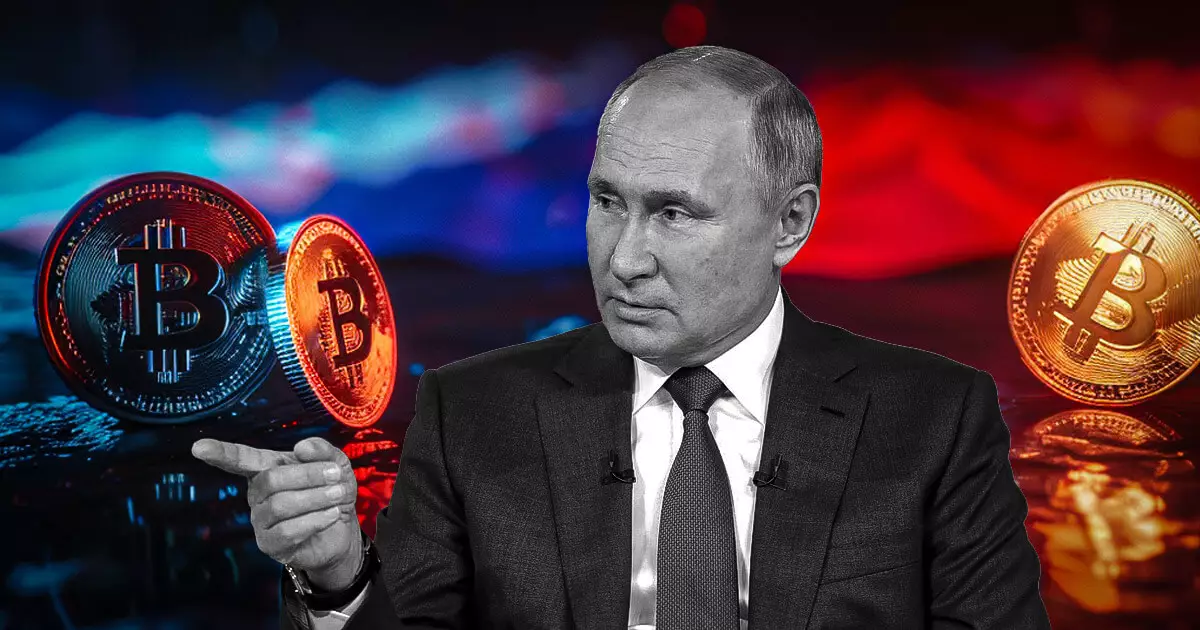In recent years, the prominence of digital currencies, particularly Bitcoin, has garnered significant attention on the world stage. One of the most influential voices advocating for this shift is Russian President Vladimir Putin. During his keynote at the Investment Forum in Moscow, he articulated a compelling argument for the role of cryptocurrencies in transforming global finance and enhancing economic stability. This article delves into Putin’s assertions, the implications for global economic dynamics, and the evolving regulatory landscape in Russia.
Bitcoin as a Global Reserve Asset
Putin’s appeal to Bitcoin goes beyond mere speculation; he views digital currencies as a viable alternative to traditional fiat currencies, specifically the US dollar. He pointed out the challenges facing nations that are heavily reliant on dollar transactions and exposed to the political whims of US authorities. In the wake of the freezing of $300 billion in Russian reserves due to Western sanctions instigated by the ongoing conflict in Ukraine, the necessity for a decentralized and independent financial system has never been clearer. To Putin, Bitcoin offers a way to bypass such geopolitical constraints, positioning itself as a modern-day global reserve asset.
The resilience exhibited by cryptocurrencies like Bitcoin is a cornerstone of Putin’s argument. As he stated, “Who can ban Bitcoin? Nobody.” This sentiment reflects a growing realization that financial technologies are evolving in ways that traditional economic structures cannot fully control. The inherent qualities of Bitcoin and similar digital currencies—decentralization, transparency, and adaptability—are driving countries to reevaluate their monetary policies and explore alternatives that enhance economic sovereignty. This movement signifies a potential shift from centralized currency management to more democratized financial practices.
Putin’s endorsement of cryptocurrency coincides with the Russian government’s recent legislative actions, which officially recognize cryptocurrencies as property. This legal acknowledgment not only provides tax relief for digital transactions but also exempts crypto mining and sales from value-added tax (VAT). Such moves demonstrate Russia’s commitment to fostering innovation within its financial sector while simultaneously insulating itself from external economic pressures. By creating a conducive environment for digital assets, Russia aims to leverage crypto technology as a tool for economic stability and growth.
Implications for Global Financial Systems
The conversation around digital currencies is not limited to Russia; it extends to various global forums, including the BRICS summit, where discussions advanced the possibilities of using cryptocurrencies for cross-border payments. The intention to challenge the traditional financial systems dominated by the West underscores a broader trend towards diversification in global finance. Countries increasingly recognize that digital currencies can facilitate easier and more efficient international transactions devoid of political interference.
Vladimir Putin’s advocacy for Bitcoin and digital currencies encapsulates a broader narrative of seeking financial independence in an increasingly polarized world. As nations navigate through geopolitical tensions and economic challenges, cryptocurrencies may emerge as critical assets in fostering economic resilience. With Russia taking steps to solidify its position, other countries may soon follow suit, shaping a new financial landscape that champions innovation and diminishes reliance on traditional power structures. As such, the future of money may well be defined by the rise of digital currencies and the shifting dynamics of global finance.

